Wakulla residents race time to protect possible slaves graves from RV development
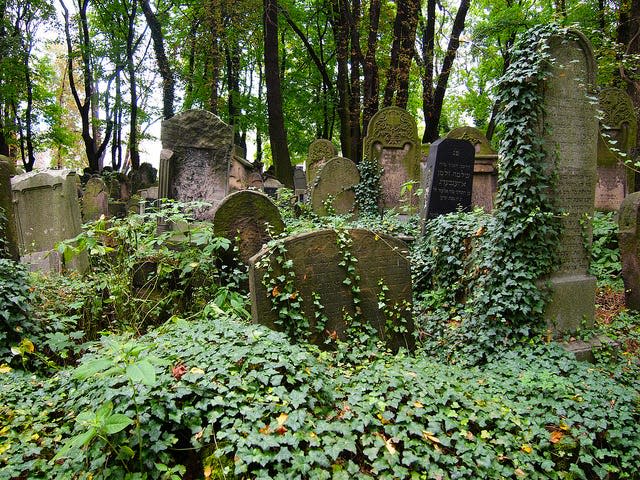
Time may run out for the residents seeking to block an overnight park for recreational vehicles on land where some of Wakulla County’s earliest settlers, including enslaved workers, may have been laid to rest.
A Flagler County developer wants to build a 171-space RV park with amenities including a pickleball court next to the Richardson Family Cemetery at the intersection of The Coastal Scenic Highway (U.S. 98) and Spring Creek Highway.
Rusty Boyd has had permits in hand to build the park where RVs can gather on 20 acres since Sept. 15.
Boyd didn’t return a call seeking comment, but it is believed construction will begin after the new year.
That gives local residents some time to find money to pay for a ground penetrating radar survey of the land to reveal whether there are any unmarked graves on the site.
If evidence of burial plots is found, then state law would block the project.
But Boyd doesn’t have to give the residents access to the site to begin a search.
“You can’t force somebody to do that. That man owns the property. If he wants to let somebody do it, that would be great, (but) I can’t speak for him,” said Wakulla County Commissioner Mike Kemp.
Spotlight on Florida as state grapples with abandoned cemeteries
Kemp and the Wakulla County Commission find themselves at the center of a dispute that officials in several communities in Florida have found themselves in recent years when abandoned cemeteries, and slave burial grounds, have been discovered.
It involves property rights, Florida’s commitment to preserving its history, and what some believe is a moral obligation to ancestors.
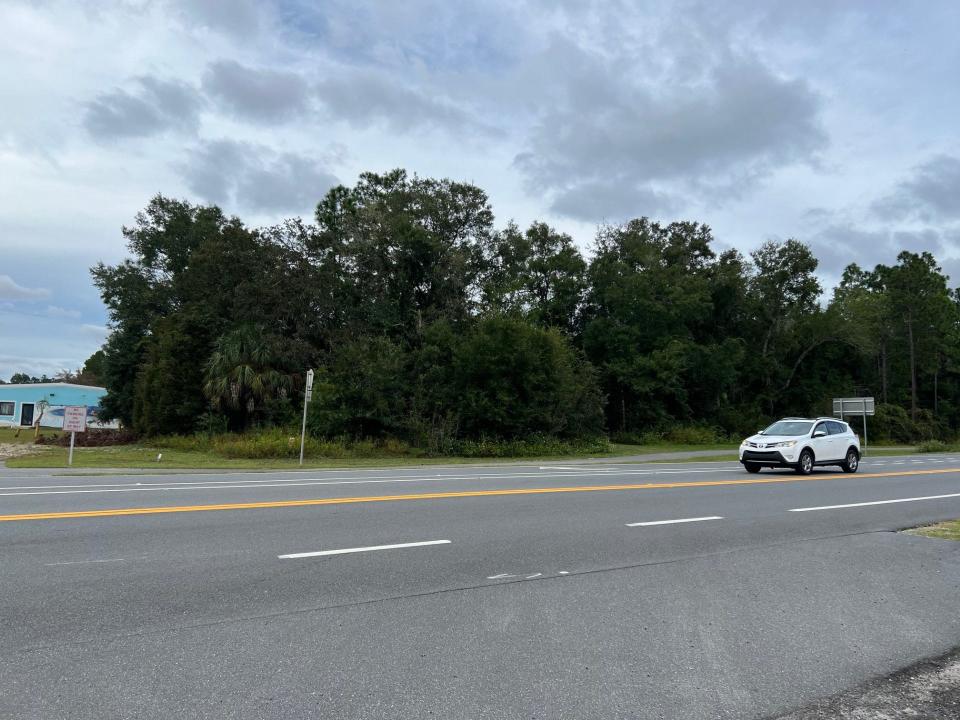
Since 2015 disputes similar to the one in Wakulla have played out in Clearwater, St. Augustine, Tallahassee, and Tampa.
Earlier this year the Florida Legislature passed HB 49 to create a Historic Cemeteries Program at the Department of State to assist communities and interest groups in identifying, protecting, and maintaining abandoned cemeteries more than 50 years old.
“This situation is not going to go away. People are going to continue to find these cemeteries that have been lost to time and communities need guidance (on how to proceed),” said Rep. Fentrice Driskell, D-Tampa, the bill’s sponsor about how Florida’s population growth can collide with its history.
HB 49 encourages local governments to seek a conservation easement to protect burial grounds.
But Driskell said the Wakulla case and one involving an Italian club in Tampa where the gravesite of a former slave who went on to become a state senator may be buried under its parking lot shows the state needs to do more to identify and preserve abandoned cemeteries.
In many cases, she explained they contain important stories about upstanding Floridians who thrived at a time when African Americans had limited opportunities.
"So there's a lot of pride in those stories and making sure that those individuals are receiving the dignity that they deserve, even in death," said Driskell.
But descendants and local officials often lack the authority to find and memorialize the sites.
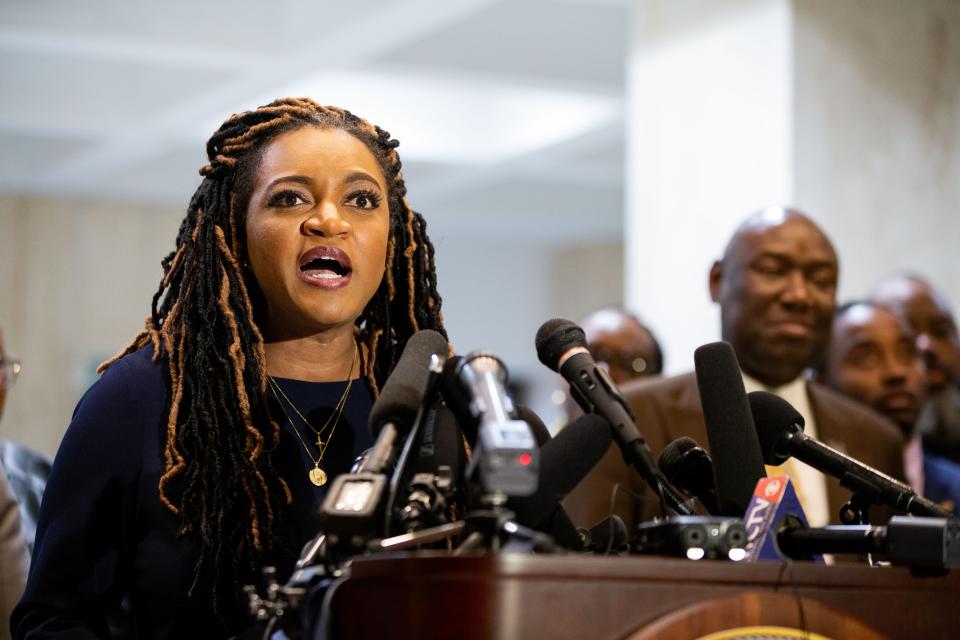
Column: Jack Rudloe: Enough of accepting Wakulla County’s insistence on runaway development
When zoning and history meets
The Wakulla County Commission approved a zoning change in June to allow a RV camp next to a cemetery with gravestones dating to the 1850s.
But then results of a ground penetrating radar survey conducted earlier in the year revealed 28 suspected unmarked graves east of what was thought to be the cemetery’s boundary and where the RV park would be.
Boyd, who paid for the survey, deeded the half-acre with the suspected unmarked graves to the Wakulla Historical Society, which also owns the cemetery.
But the findings sparked a challenge to the zoning decision and a special Commission meeting in September. Commissioners were satisfied Boyd had performed due diligence in searching for burial plots and affirmed the zoning change to allow the project to proceed.
“The problem is none of this stuff was brought up until recently,” said Kemp, about the concern over unmarked graves.
The residents want the County, Boyd, the state or someone to pay to have all 20 acres of the proposed development surveyed by ground penetrating radar – estimated cost $100,000.
They were initially excited to find that HB 49 includes $1 million for grants, money that could be used to help them pay for a survey.
But when they reached out to the Historic Cemetery Program, they left suspecting the office, which was created July 1, has yet to develop rules and procedures to implement the law and distribute the money.
The Secretary of State office said the Department is in the process of hiring staff for the program and is setting rules to award grants.
Driskell said she has contacted the program to see what can be done “to boost” things along and will meet with officials this week to discuss the situation.
Growth finds a cemetery
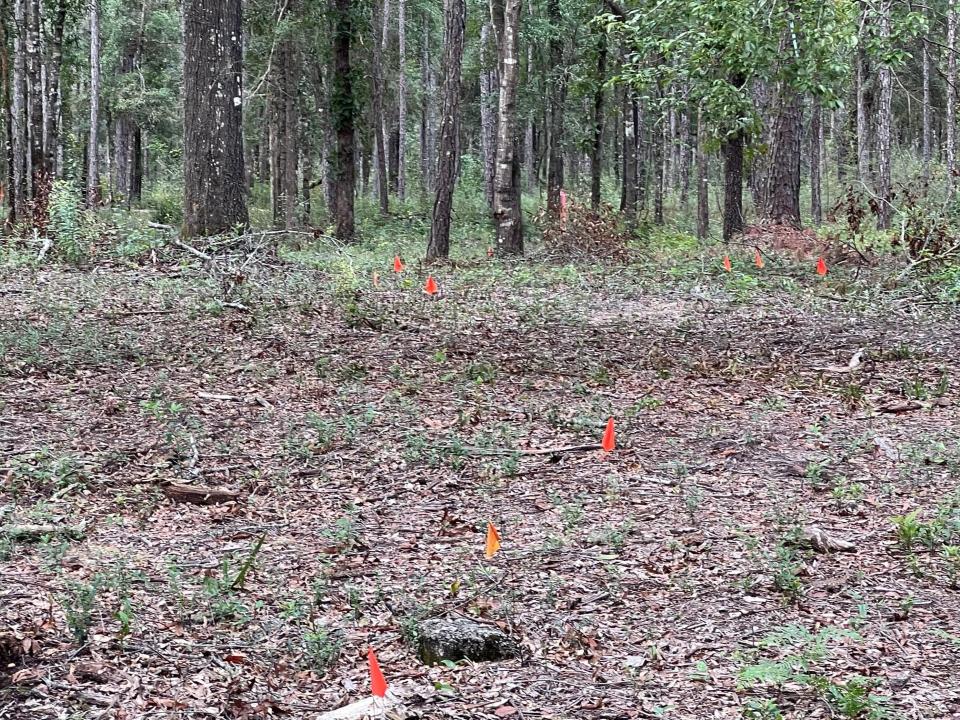
The residents fear they will be unable to raise the money to do the survey before Boyd turns dirt to pave lots for RVs.
“The concern is that once they start digging, they will unearth bodies and then it will be too late. The damage will be done,” said Gregg Davis, who is organizing the effort to establish the actual boundaries of Richardson Cemetery.
The confusion over how much land the cemetery covers is a product of antebellum burial practices, and the ability of time to conceal evidence of human burials with trees and vegetation.
Davis grew up next door to the Richardson cemetery. He said he was “gobsmacked” when he saw the number of orange flags dotting 50 yards of woods east of the cemetery after Boyd paid to survey a half-acre.
Deborah Jay of the Wakulla Historic Society said researchers have never been able to establish the cemetery’s eastern boundary.
“It is so wooded. You couldn’t see the back of the cemetery until we cleaned it in the spring to even know there were graves back there,” said Jay.
The west boundary was established in 1991. That’s when construction of a proposed grocery store was blocked after eight unmarked burial plots along Spring Creek Highway were disturbed.
State archeologist Calvin Jones later identified a total of 11 unmarked graves and the cemetery was deeded to the historical society.
Richardson was considered a pauper’s graveyard then with a shabby reputation.
“Years ago, people would just go in those places, pick a spot and get buried there. There wasn’t much more to it,” W.O. Harvey of Harvey Young Funeral Home in Crawfordville, told the Tallahassee Democrat at the time.
The First Wakullans
It is the resting place of some of the county’s first settlers
Samuel Richardson was a War of 1812 veteran who moved to Wakulla County in the 1820s. His headstone is dated 1859, and according to the 1860 census he owned 22 slaves.
The Richardson family and those of Charles Barrington, owner of a nearby plantation and another two dozen slaves, are buried in the north section of the cemetery.
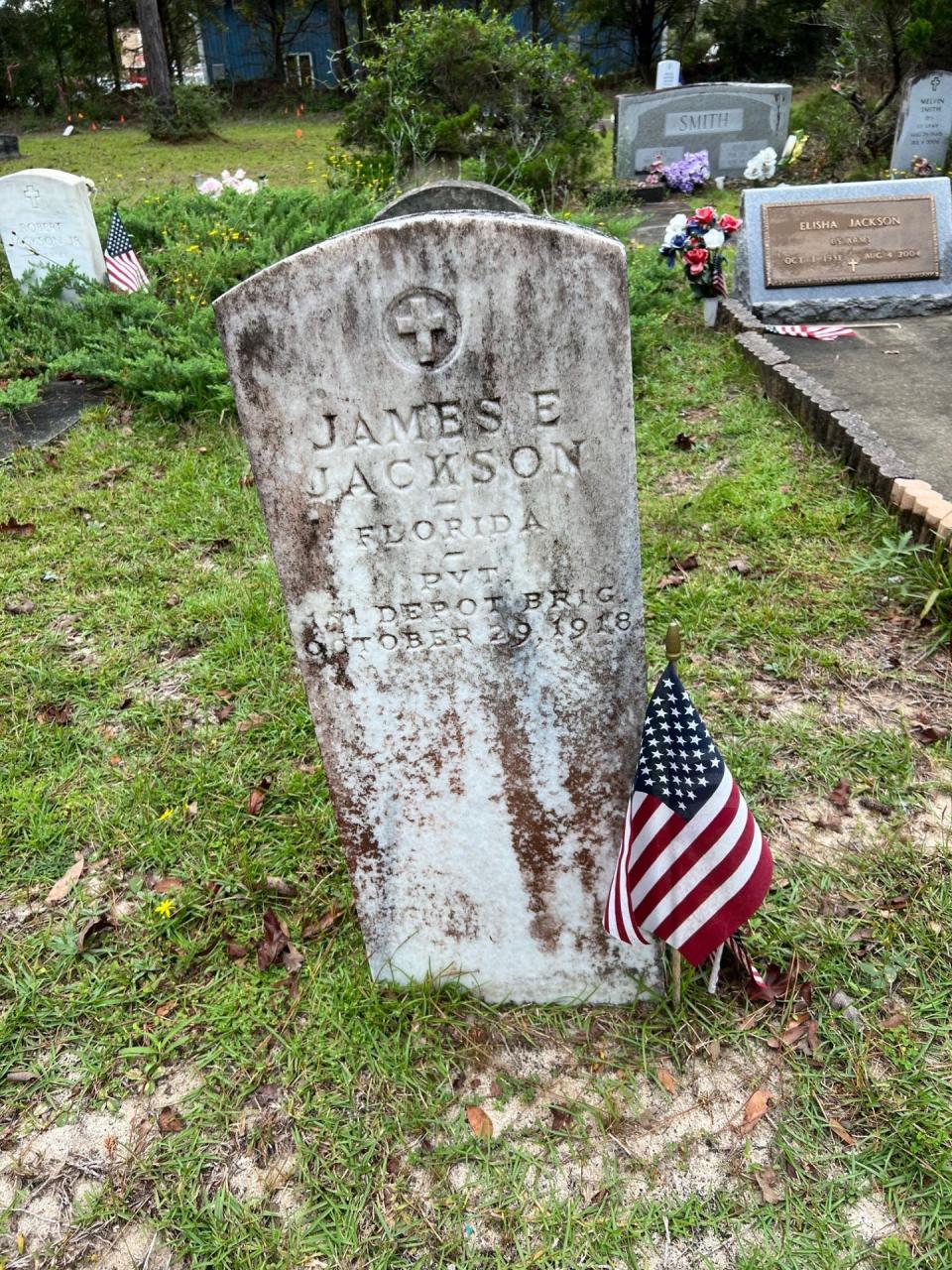
Slave burials were random in placement, unmarked, and scattered about a plantation.
After the Civil War descendants of the enslaved began to use the south end of the cemetery and to mark the graves.
It is suspected the graves of enslaved workers are scattered between the two groups and to the east.
A recent visit to the site found homemade cement headstones, possible sharecropper burials marked with shells, remnants of tools, and wood, and the grave of a World War I veteran.
Francis Baker visited her husband’s grave at Richardson on a September afternoon.
“I didn't expect to see you here," she said, after being startled by another visitor emerging from the woods.
"It is peaceful here," she said.
Baker said her family goes back in Wakulla County to a 6th great-grandfather on her mother’s side, an escaped slave from South Carolina who made it to the coast.
On her father’s side she has records showing they’ve been in the county for five generations.
What's next
Earlier in the day, Baker was among a dozen residents who met at the Wakulla Community Center to discuss how to get Boyd’s consent to conduct a ground penetrating radar survey before he develops property north and east of the cemetery’s known borders.
Wakulla County planning director Somer Pell told the group that Boyd indicated he may be willing to work with them if someone else paid for the survey.
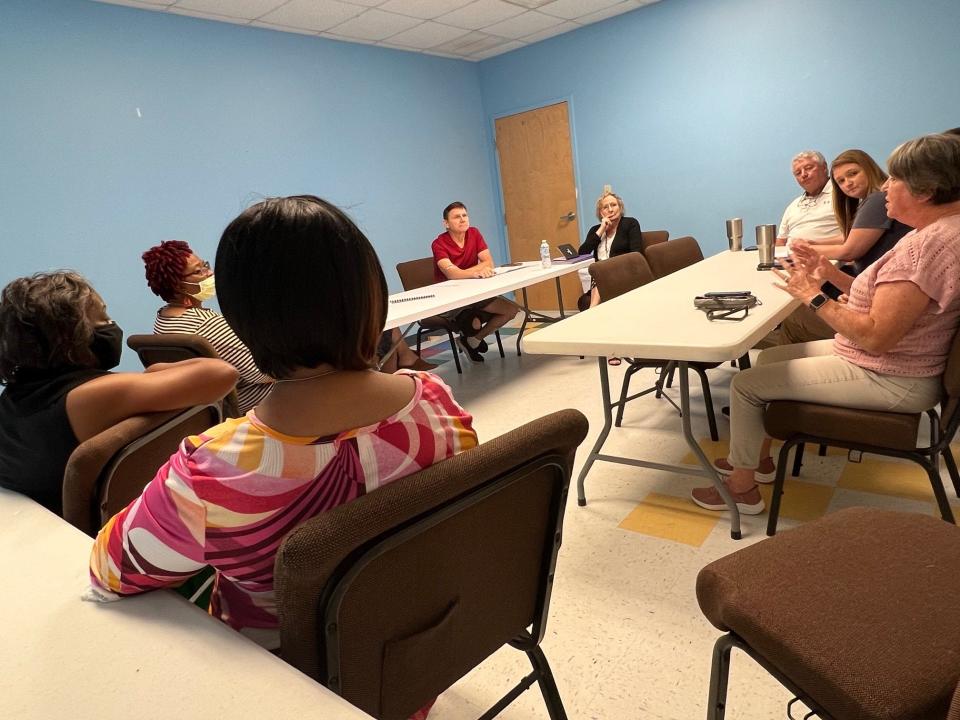
“So, if there is a funding opportunity that the group can come up with, I'm happy to work as an intermediary with the property owner to gain access,” said Pell.
The group intends to seek a grant from the Historic Cemeteries Program, and money from the state budget through their legislative delegation of Sen. Corey Simon, R-Tallahassee, and Rep. Jason Shoaf, R-Port St. Joe, to do the survey.
If they were to secure the money then they would need Boyd’s permission to conduct the survey.
That a survey is up to the landowner's discretion troubles the lawmaker Driskell.
She explained it handicaps descendants, residents and local officials’ efforts to locate historic burial grounds.
Driskell intends to propose what would amount to an abandoned cemetery easement to allow non-invasive procedures like ground penetrating radar surveillance when there is a reasonable suspicion of unmarked graves.
“I’m talking more about an easement that allows for access to somebody's lands. So just like for example, the utilities having easements when they need to come on to property and read a meter, that's more what I'm talking about,” said Driskell, after testifying in federal court about how the Florida Legislature drew the state's congressional districts..
The Florida Legislature's 2024 session begins January 9.
It remains unclear when construction of the proposed RV park will begin.
James Call is a member of the USA TODAY NETWORK-Florida Capital Bureau. He can be reached at jcall@tallahassee.com. and is on X as @CallTallahassee
This article originally appeared on Tallahassee Democrat: Wakulla the latest county in Florida to grapple with slave cemeteries

